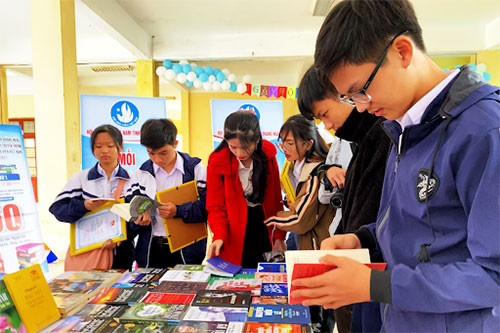 |
Accordingly, by 2025, 80% of students and learners at educational institutions will be able to access, use information, knowledge, and digital transformation program by accessing to digital documents at public libraries and libraries of educational institutions, education - training, culture, science.
About 20 - 25% of people in rural areas, 15-20% of people in areas with difficult socio-economic conditions can access to and use information, knowledge, and information services at public libraries, community learning centers, and publishing agencies through accessing to digital documents of the library industry digital transformation program.
At the same time, it strives for the number of people accessing and using the information at libraries to reach 2 million times per year. It is estimated that 100% of educational institutions at all education levels have libraries with appropriate resources, of which 50% of educational institutions at the general education level have libraries that meet standards in accordance with the Regulations on library standards for high schools. About 100% of district, town and city libraries have their own offices or are located in district, town, and city cultural and sports centers, ensuring the function of organizing professional library activities and are invested in invest in-depth information technology equipment, digital infrastructure.
By 2030, the targets of reading culture development will be maintained and consolidated in the direction of increasing gradually, striving to reach from 0.5 to 1 copy of book/person. Reading environment continues to be expanded with many types from province to grassroots. Completing digital transformation of the library industry, and connecting different types of libraries in the area to well meet the reading needs of the people through the internet, computers and smart devices.
To accomplish the above goal, the Provincial People's Committee requires relevant departments, agencies and sectors to well perform 5 tasks and solutions. Specifically, there are promoting information and propaganda, creating habits, equipping reading skills and methods, perfecting mechanisms and policies and stepping up socialization, improve the operational efficiency of the public library system, strengthen the application of information technology and expand international cooperation on libraries.
It is known that the funding for the implementation of the program comes from the central and provincial budgets according to the regulations on decentralization of the state budget. In addition, there are funding and support sources from domestic and foreign organizations and individuals, as well as other lawful mobilization sources.
Translated by Uyen Linh (Source: Binh Thuan Newspaper)

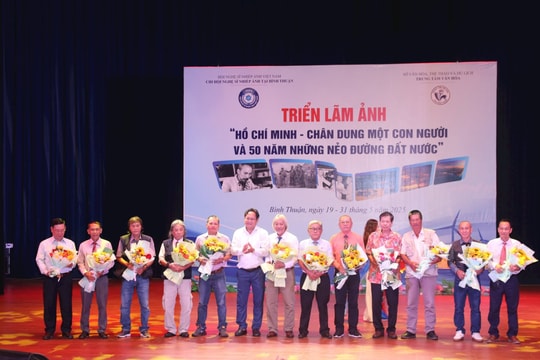

.jpg)
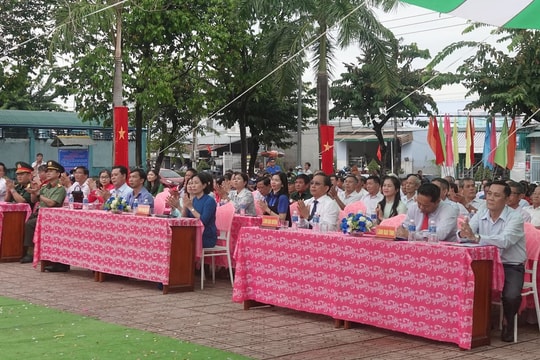

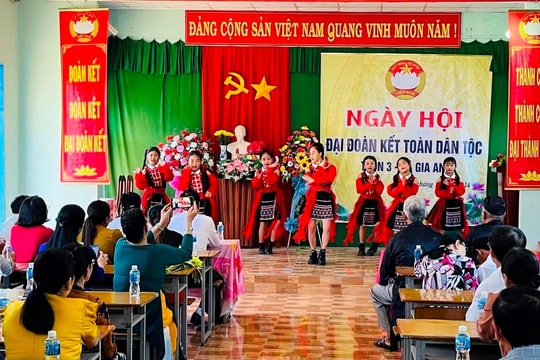




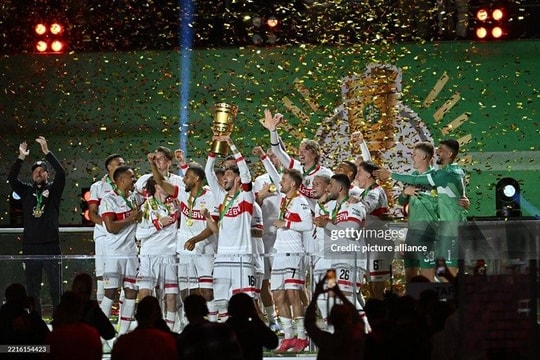











.jpeg)

.jpeg)


.jpeg)


